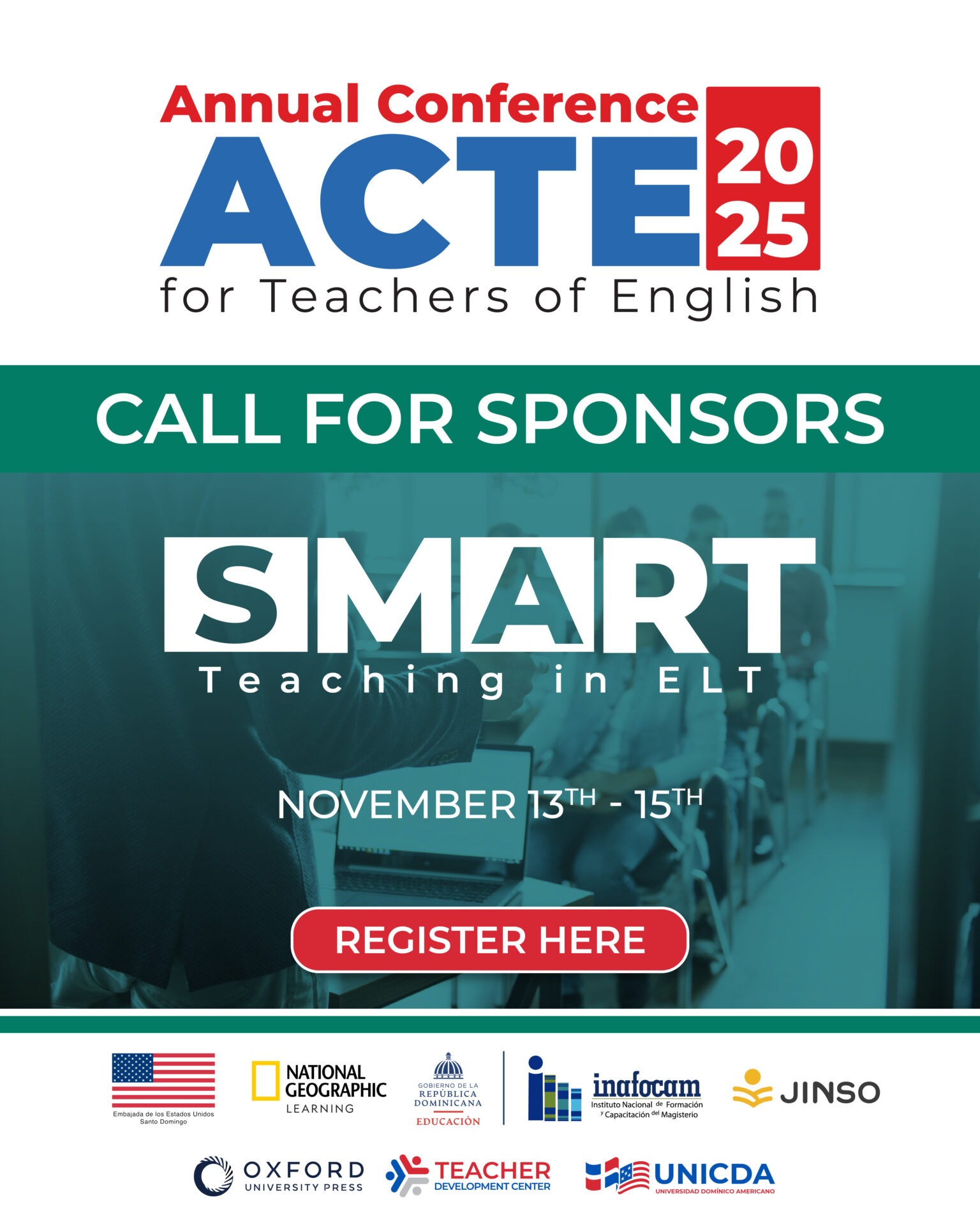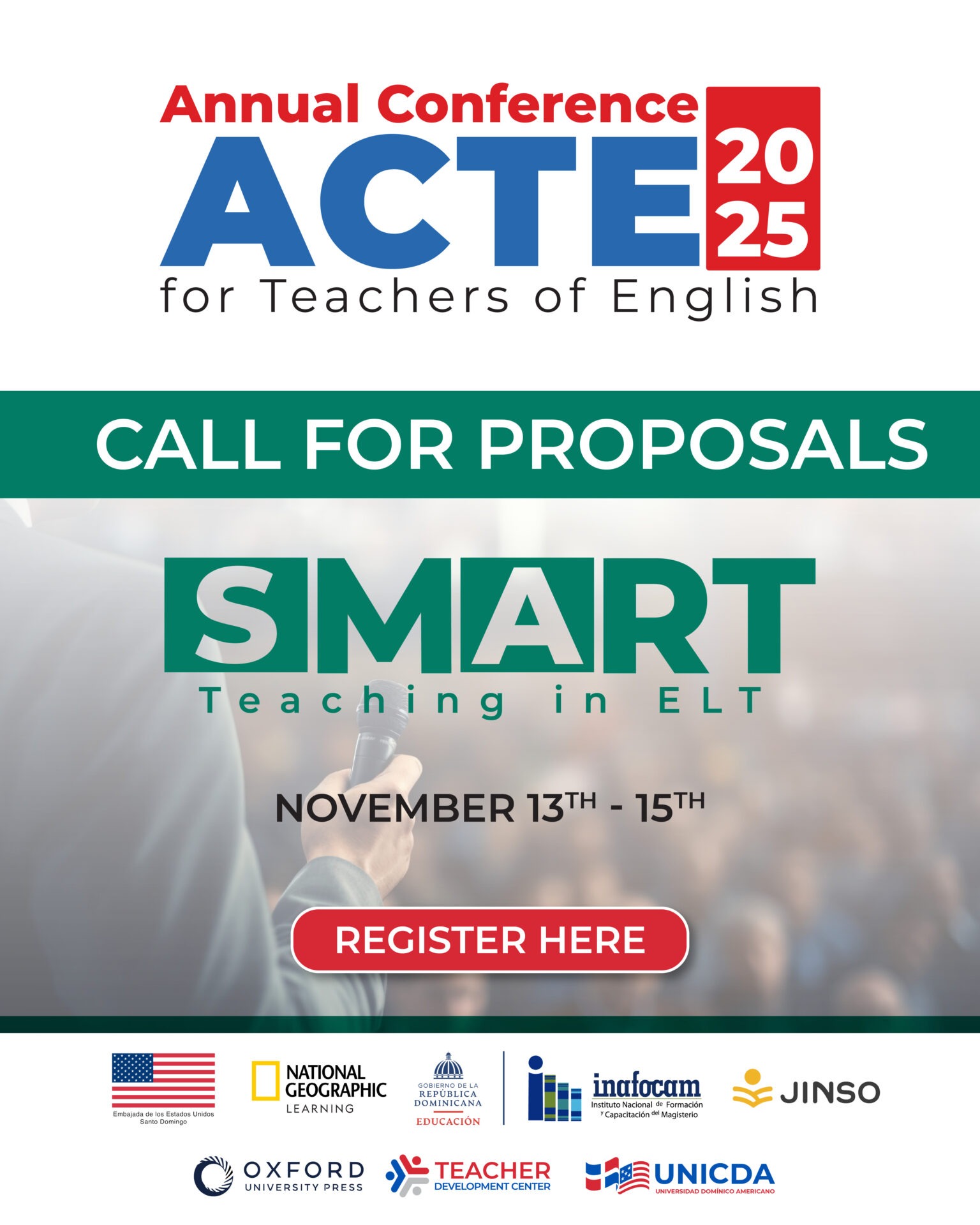








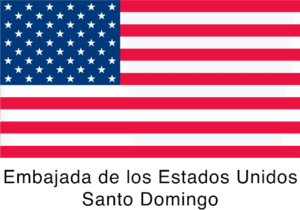




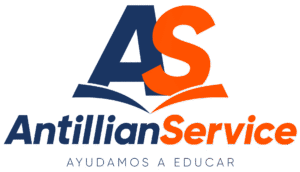
Concept Note 2025 National English Teachers Conference
SMART Teaching in ELT: Strategies for Effective Teaching Practices
In a globalized world where language learning plays a crucial role in communication and access to opportunities, English Language Teaching (ELT) must address 21st-century challenges with innovative and effective approaches. The 2025 National English Teachers Conference will focus on the concept of SMART Teaching, a pedagogical framework that integrates effective teaching strategies, measurable outcomes, adaptability, contextual relevance, and the use of technology to enhance English teaching and learning.

Conference Program
Get to Know our Facilitators
Keynote
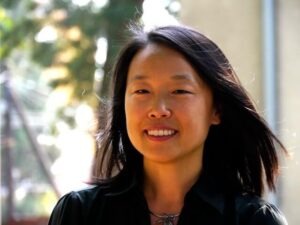
Joan Kang Shin, Ph.D.
is a Professor of Education at George Mason University and the Director of the Advanced Professional Teacher Development and International Education (APTDIE) Division. She is also the founder and director of the Global Online Teacher Education Center (GOTEC) at Mason.

Joan Kang Shin, Ph.D.
is a Professor of Education at George Mason University and the Director of the Advanced Professional Teacher Development and International Education (APTDIE) Division. She is also the founder and director of the Global Online Teacher Education Center (GOTEC) at Mason. She is an award-winning author and series editor for National Geographic Learning.
Her titles include Breaking Through the Screen, Teaching Young Learners English, Our World, and Impact. She recently published a co-edited volume through Routledge called Contemporary Foundations for Teaching English as an Additional Language and a co-authored book through TESOL Press called The 6 Principles for Exemplary Teaching of English Learners: Young Learners in a Multilingual World. In 2021, she was named one of the top 30 English Language Specialists by the U.S. Department of State in recognition of her lasting impact on the Specialist Program and the field of TESOL. She currently sits on the Board of Trustees for The International Research Foundation for English Language Education (TIRF).
Preparing Youth for Real-World Media in English
In today’s multimodal world, teaching English means more than just language skills it’s about equipping students with media literacy to navigate real-world communication. This session will delve into how media literacy education can transform English language teaching for young learners and teenagers, empowering them to engage thoughtfully with the vast media landscape. This lively session will explore essential frameworks and practical, ready-to-use strategies that bring real-world media into your classroom. Discover how to design dynamic, relevant activities that captivate students while preparing them for an English-speaking world rich in media and information!
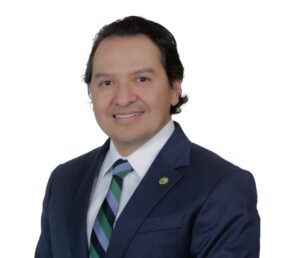
Marvin Cardoza
Marvin Cardoza is a recognized authority in economics, taxation, and labor market analysis. He holds a master’s degree in economics with a concentration in Macroeconomics and Public Policy from the Pontificia Universidad Católica de Chile.
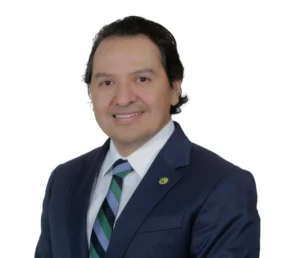
Marvin Cardoza
is a recognized authority in economics, taxation, and labor market analysis. He holds a master’s degree in economics with a concentration in Macroeconomics and Public Policy from the Pontificia Universidad Católica de Chile.
He is a university lecturer, teaching courses in Economics, and has professional experience at the Central Bank of Nicaragua. Currently, he works at the Tax Administration of the Dominican Republic. Marvin has also been awarded the Central Bank of the Dominican Republic’s Economics Competition Prize.
Do you speak English? Evaluation of the Impact of the English Immersion for Competitiveness Program of the Dominican Republic.
During this session, we will reflect and analyze the impact of learning a second language on employability aspects such as salary earned, among others that validate the teacher’s work and their legacy in transforming students’ lives.
Idioma: SPA
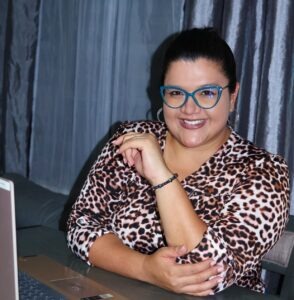
Brenda Pineda
Brenda Pineda holds a Teaching Degree specialized in ESL for High School and Adults in El Salvador issued at Centro Cultural Salvadoreño Americano. Ms. Pineda has been in the teaching field since 2011, first as teacher and coordinator at Colegio José Ingenieros, and later (2016), simultaneously, as Academic Consultant for Pearson Education.

Brenda Pineda
holds a Teaching Degree specialized in ESL for High School and Adults in El Salvador issued at Centro Cultural Salvadoreño Americano. Ms. Pineda has been in the teaching field since 2011, first as teacher and coordinator at Colegio José Ingenieros, and later (2016), simultaneously, as Academic Consultant for Pearson Education. She is now part of the Coaching Team from PEARSON and trains English teachers and students from LATAM through conferences and Master Classes.
From Traditional to Intelligent Classrooms: Designing Learning with AI and Active Methodologies
In the era of rapid technological advancement, the role of artificial intelligence (AI) in education has shifted from novelty to necessity. This lecture explores the transition from traditional classrooms to intelligent, learner-centered environments by integrating AI tools and active learning methodologies. Anchored in educational theory and digital pedagogy, the session highlights the importance of developing teachers' digital competencies and fostering systematic thinking as key enablers for meaningful AI integration.
Virtual Sessions

Junuen Mondragon has been an English teacher for 15 years, helping young learners, teenagers and adults to achieve their language learning goals. Besides teaching English at all levels, he has designed educational programs and materials for learners of all ages as well as digital learning pathways for adults. He has also participated in multiple ELT events as a speaker and trainer, encouraging teachers to create a better version of themselves and inspire their students to do the same. He is currently an academic consultant at National Geographic Learning.
This session explores how English language teaching must evolve to meet the needs of Generation Z and Generation Alpha, learners shaped by technology, diversity, and rapid change. Participants will examine the characteristics, learning preferences, and challenges of these digital-native generations, and discover inclusive, tech-integrated strategies to foster engagement and success. The workshop also addresses the importance of neurodiversity, offering practical tools for supporting students with ADHD, dyslexia, and autism through multisensory input, flexible pacing, and scaffolded tasks. By understanding who our learners are and how they learn best, educators can create more responsive, empowering, and future-ready classrooms.
Sarah Paola Taveras Mauad holds a Bachelor’s degree in Primary Education from Pontificia Universidad Católica Madre y Maestra (PUCMM). She currently works as a 3rd grade teacher at the Dominico Americano School, where she fosters engaging and student-centered learning experiences. With a strong commitment to professional growth, she participated in the 2024 TRE Association Conference held in Mexico, sharing insights and learning from international educators. Her professional interests focus on innovative practices in English Language Teaching and primary education.
Paola Tejeda is completing a Master’s Degree in Education with a specialization in Management and Organization of Educational Centers. She holds a Bachelor’s Degree in Education, majoring in English, from UNICDA. With over ten years of experience in the field of English Language Teaching, she currently serves as a Curriculum Leader at Dominico Americano School, supporting teachers in implementing effective and student-centered instructional practices. Paola has led professional development workshops and actively contributes to the continuous improvement of teaching and learning within her institution.
From Teaching Goals to Learning Goals: SMART Approaches to Student-Centered Coaching in ELT explores how shifting the focus from instruction to learning transforms English Language Teaching. Grounded in the Student-Centered Coaching framework and SMART goal setting, this session provides practical ways for teachers and coaches to design measurable learning goals that promote evidence-based growth. Participants will discover strategies for using data, feedback, and reflection to enhance student achievement and engagement, leaving with actionable tools to strengthen student-centered practices in their classrooms.

Sarah Taveras & Paola Tejeda

Sabino Morla began his career at the Instituto Cultural Domínico Americano at the age of 23 as an English major. Nine years later, he secured a teaching position in the General English Department at the Universidad Autónoma de Santo Domingo (UASD), where he was later appointed as a professor in the Applied Linguistics Department.
He pursued studies in Contemporary U.S. Literature in Louisville, Kentucky, and Applied Linguistics at UASD. At UASD, he currently teaches Academic Writing, Introductory Literature, English for Specific Purposes (Medicine and Computer Science), and English Phonetics and Phonology. In his private practice, he offers preparation for proficiency exams such as TOEFL, IELTS, GRE, and FCE.
Morla is an internationally certified SIT TESOL teacher, a certified teacher trainer, and a member of TESOL and PR-TESOL. He contributed to the development of the current MINERD English Curriculum and has served as a consultant for Oxford University Press in the Dominican Republic, as well as a former consultant for National Geographic Learning and Macmillan Education.
This interactive workshop demonstrates how humor can enhance engagement, comprehension, and communication skills in English as a Foreign Language (EFL) classes across all CEFR levels. Participants will explore the linguistic, cultural, and pedagogical benefits of integrating jokes, funny stories, sitcoms, silent videos, and image-based narratives into their lessons. The session will present level-appropriate strategies, from simple visual humor at A1 to nuanced satire and irony at C1/C2.
Viviana Inés Canulli holds a Master’s degree in Bilingual Education from Universidad Tecnológica, and has been a teacher of English for 30 years in public and bilingual schools in Argentina. She is a Specialist in Inclusion and Diversity in Education, University Expert in Students with Special Educational Needs, and certified Autism and Neurodevelopmental Disorders Analyst. From 2019 to 2023, she coordinated adapted international English examinations.
Founder and Educational Neurodiversity Trainer at Adapting Your World, she has delivered training programs for teachers worldwide. She has been a speaker at congresses and seminars in Argentina, Uruguay, Canada, Colombia, the Dominican Republic, and several Asian countries. Author of inclusive education resources, she is also a member of local and international ELT and inclusive education associations.
Emotional Support Techniques for Neurodivergent Students are vital for inclusive, thriving classrooms. Neuro-Linguistic Programming (NLP) helps reframe negative experiences, build self-confidence, and improve emotional regulation. Mindfulness cultivates present-moment awareness, reducing anxiety and enhancing focus. Positive Psychology focuses on strengths, fostering resilience, optimism, and a growth mindset. Together, these approaches create supportive learning environments where every student feels valued. Teachers who apply them address emotional needs while boosting academic engagement. Such strategies benefit all learners while respecting the unique ways neurodivergent minds grow.


Jeniffer Acosta holds a Master’s Degree in Special Education from Nebrija University. She is a 3rd Grade Homeroom Teacher and Early Stimulation Specialist with over seven years of experience teaching English to children aged 6–10. Her background in psychology and inclusive education informs her student-centered and differentiated teaching approach. She is committed to fostering autonomy, engagement, and meaningful learning through inclusive and creative educational practices.
Stephanie Sehuoerer Jiménez holds a Bachelor’s Degree in Psychology from INTEC and is currently completing a Master’s in Teaching English as a Foreign Language at UNICDA. She works as a First Grade Teacher and has been in the education field since 2014, teaching children aged 3–10. Her background in psychology shapes her approach to English Language Teaching, allowing her to meet students’ individual needs through empathy and differentiation. She is passionate about creating inclusive, engaging classrooms that nurture curiosity, communication, and confidence in young learners.
This presentation explores practical ways to transform English classrooms into interactive, student-centered spaces where young learners take an active role in their learning. It highlights evidence-based strategies such as task-based learning, differentiation, and collaborative projects that foster autonomy, motivation, and meaningful engagement. The session also demonstrates how AI and digital tools can enhance participation, personalize instruction, and support diverse learning needs. Participants will leave with actionable ideas to design dynamic and inclusive lessons that promote confidence, communication, and critical thinking in early learners.
Concurrent Sessions
Amaury Rafael Beltré-García is an experienced English professor holding a bachelor’s degree in modern Languages, majoring in English, and a master’s in Applied Linguistics for English Language Teaching from Universidad Autónoma de Santo Domingo (UASD). Currently works at UASD-Recinto San Juan and Recinto Urania Montás (ISFODOSU), where he is the academic coordinator of Diplomado Intensivo de Inglés para Docentes. In addition, he is a member of Grupo Interdisciplinario de Investigación Educativa Urania Montás (GIIEUM). He has presented his research findings at several research congresses and has collaborated, as a manuscript reviewer, with International Journal of New Education (IJNE) and Revista Caribeña de Investigación Educativa (RECIE).
The S.M.A.R.T teaching in ELT: evidence-based strategies for assessment is a dynamic session designed to empower teachers with practical and research-informed tools for measuring learning effectively. This interactive workshop blends engaging activities with proven methods like task-based learning and communicative approaches, while also showcasing how digital tools can transform assessment into a powerful driver of student success.
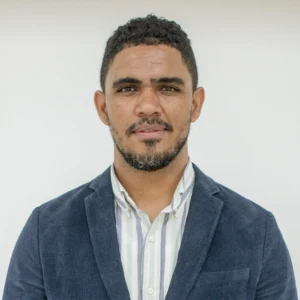
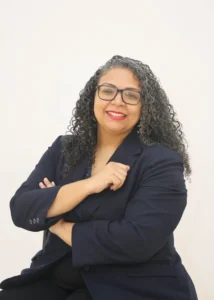
Anabel Camacho Cuevas is a dynamic and dedicated educator, trainer, and instructional leader from the Dominican Republic with over 15 years of experience in language instruction, teacher training, and academic leadership. She holds an MA in Teaching English to Speakers of Other Languages (TESOL) from Marlboro College Graduate School, an SIT TESOL Trainer License from SIT and World Learning, and a Trainer of Trainers Certification (2025) from World Learning’s SIT Graduate Institute. She also completed advanced studies in E-Learning and Digital Teaching (UNIR, Spain) and Leadership and Management of Educational Institutions (BARNA Management School).
Anabel currently serves as High School Principal (Grades 9–12) at Dominico Americano School (DAS), where she leads academic and administrative initiatives, supports curriculum implementation, and coaches teachers in reflective and evidence-based instructional practices. She is also a Senior Teacher Trainer at the Teacher Development Center (TDC) of Dominico Americano University (UNICDA), where she designs and facilitates professional development projects for teachers across educational sectors.
Anabel has coordinated and facilitated national and international training initiatives, including projects sponsored by the U.S. Embassy in Santo Domingo and World Learning. As an Affiliated Member of World Learning’s SIT Graduate Institute, she has collaborated on TESOL certification programs and leadership development courses in the Dominican Republic, Costa Rica, Peru, and the United States. Her professional interests include instructional coaching, reflective practice, adult education, and leadership for school improvement.
Passionate about fostering autonomy, collaboration, and meaningful learning, Anabel views education as a transformative process that begins with self-awareness and purposeful practice.
This session invites educators to explore the power of reflection as the foundation of professional growth. Grounded in the SIT TESOL experiential learning cycle (Experience, Description, Interpretation and Action), participants will engage in activities that model how teachers can transform daily classroom moments into meaningful learning opportunities. Through guided reflection and dialogue, participants will identify personal insights connected to classroom decisions and will design small actionable steps for classroom improvement. The session emphasizes reflection not as an ad-on, but as a mindset for intentional Learner centered teaching.
Andrea Espinach Roel is a full-time Oxford Educational Consultant. She holds a master’s degree in educational administration. Before entering the publishing industry, she taught English as a second language for twenty-three years in Costa Rica to all age groups (kids, teenagers, young adults, and adults). She’s been an Academic Coordinator in different institutions and has experience in designing English Programs for all ages and areas such as English, Science, Business, Technology and Electromechanics.
We cannot ignore that our digital world has changed the nature of learning. Technology can make classroom life easier, but if we’re honest with ourselves it also brings problems and questions! In this session we explore some of the drawbacks with technology in education and consider two elements that can help to ensure that our technological use puts the needs of the students before the capabilities of technology: digital literacies and digital wellbeing.
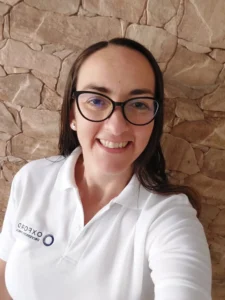
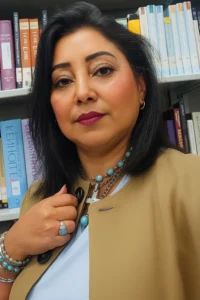
Anilka Casado holds a master’s degree in applied Linguistics from UASD, along with postgraduate studies in Educational Psychology, English Education, Educational Management, and Curriculum Design. She is currently a university professor in the Dominican Republic, where she teaches courses such as literature, phonetics, grammar, composition, didactics, and curriculum design. With over 20 years of experience in English Language Teaching, she has trained both pre-service and in-service teachers through a competency-based TESOL approach. She is also a licensed Speaking Examiner for Cambridge University Assessment, contributing to international standards of language evaluation. In addition, Anilka has participated in national teacher development programs and academic research in ELT.
This session explores brain-friendly strategies for ESL teaching based on how the mind learns languages best. Teachers will discover practical techniques such as multisensory input, emotional engagement, and movement-based learning that boost memory, motivation, and fluency. Participants will leave with classroom-ready ideas to make English learning more effective and enjoyable.

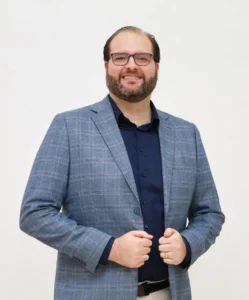

Luis Marrero is an experienced English Language Teaching professional with a Bachelor’s degree in English Language Teaching. He currently leads the Evaluations Department at Escuela de Idiomas, ICDA , where he oversees psychometric testing, placement exams, and institutional assessment initiatives aimed at improving learning outcomes. In addition, he teaches Literature at Saint Joseph School (SJS), where he designs engaging curricula that foster critical thinking and reading comprehension. With extensive experience developing lesson plans and assessment tools for both young learners and adult students, Luis is deeply committed to continuous professional growth and to advancing the field of ELT through the integration of innovative methodologies and digital tools.
Michael Moore holds a Bachelor’s degree in Sociology from Stetson University, Florida. He currently serves as the Director of Quality Assurance at the Instituto Cultural Domínico Americano (ICDA), where he oversees institutional processes that ensure academic excellence and continuous improvement. With extensive experience in applying quality assurance frameworks to education, Michael has contributed to building systems that strengthen program evaluation, accreditation, and teacher performance review. He is actively engaged in professional development initiatives that integrate international standards of quality management into EFL and higher education contexts. His work bridges the fields of sociology, education, and quality assurance, fostering innovation and accountability in teaching and learning.
Anny Mateo holds a bachelor’s degree in marketing, graduating magna cum laude from the Universidad Autónoma de Santo Domingo (UASD). She spent over two years teaching English to adults, teenagers, and children, and served as an Academic Leader. Currently, she works as a Test Specialist in the Evaluations Department. Her experience includes curriculum planning, classroom management, and academic leadership within ELT. Anny is passionate about language education and continues to contribute to the field through assessment and training.
This workshop introduces EFL teachers to the WISER framework, adapted from quality control principles, to enhance engagement, formative assessment, and continuous improvement in the classroom. WISER stands for Watch, Inspire, Simplify, Evaluate, Revise, guiding teachers to observe student understanding, motivate learners, streamline instruction, assess learning meaningfully, and iteratively refine lessons. Facilitators Anny Mateo, Michael Moore, and Luis Marrero will lead participants through hands-on activities such as Kaizen reflections, Stop-the-Line formative checks, pilot-testing assessments, rapid PDCA cycles, and a novel Kahoot closure activity for real-time understanding analysis. Attendees leave with actionable strategies to implement WISER principles immediately, making classrooms more engaging, effective, and reflective.
Claudio José Polonia Díaz is an English language educator with over 30 years of experience teaching in diverse settings. He earned a B.A./M.A. in Teaching English as a Foreign Language from UNICDA, Dominico Americano University.
Throughout his career, Mr. Polonia has served as a coordinator and subject teacher at various bilingual and traditional schools and universities, including Dominico Americano University where he has worked for 20 years. Since 1989, he has actively participated in and presented at numerous courses, workshops, training sessions, and conferences related to the field of education in the Dominican Republic, consistently seeking professional development to enhance classroom practices.
Throughout more than 20 year-experience as a Baseball English professor Mr. Polonia has served to different academies being Boston Red Sox the one he worked for almost 10 years next to Mr. Jesus Alou. It has been quite a thrilling experience to find baseball players with different needs though convinced that learning the English language would be the most important task for them.
Mr. Polonia’s pedagogical focus centers on establishing strong connections with students to maximize their learning potential. His passion for teaching extends beyond simply meeting students’ immediate needs for English proficiency; he aims to foster a deeper understanding and encourages active communication both within and outside the classroom.
This workshop guides teachers in managing large EFL classes through proactive, student-centered strategies. It covers building positive classroom culture, using technology, and applying low-prep activities to boost engagement. Teachers will also learn quick tactics for handling noise and focus, ending with a personalized action plan.
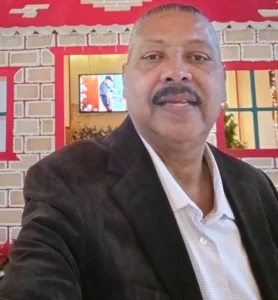
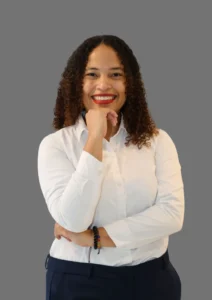
Doralis Cordero holds a Master’s degree in Psychological Intervention in Development and Education from Universidad Europea del Atlántico and a Bachelor’s degree in Educational Psychology from Universidad Iberoamericana in Santo Domingo. Since beginning her professional journey in 2018, she has positively impacted students across La Romana, San Pedro, Juan Dolio, and Santo Domingo. Passionate about mental health, education, child protection, the environment, and animal welfare, Doralis is dedicated to fostering holistic student development. She currently serves as the Elementary Psychologist at the Domínico-Americano School.
Teaching is more than delivering lessons it’s an act of connection, intention, and presence. This presentation invites educators to explore The Four Agreements by Don Miguel Ruiz as guiding principles for SMART teaching in ELT. By aligning mindful communication, empathy, and self-reflection with clear, achievable goals, teachers can transform everyday challenges into opportunities for growth. Through real classroom examples, participants will discover how living these agreements fosters authenticity, balance, and purpose in their teaching journey. Together, we’ll learn how to teach not only with skill, but with heart.

Emilia Díaz
Karol Felipe
Penélope Torres


Emilia Michel Díaz Novas holds a technical degree in Marketing and completed the Advanced English Program at the Instituto Cultural Domínico Americano (ICDA). She is currently pursuing a degree in Education with a concentration in Foreign Languages (English) at Universidad Domínico Americana and a degree in Tourism at Universidad Autónoma de Santo Domingo (UASD). Emilia works as an EFL and ELE teacher and serves as Academic Supervisor of the Adult Program at ICDA, Escuela de Idiomas. She has contributed to several institutional initiatives, including the Rally Quisqueya of the Spanish for Foreigners program and workshops on playful program planning. Her professional interests focus on promoting cultural exchange through language teaching, fostering meaningful connections between learners and the diverse cultures behind each language.
Karol Felipe Gómez is a Business Administration graduate from UNAPEC and is currently pursuing a Master’s degree in Senior Management at UASD. She has extensive experience in education, academic coordination, and project management, with a focus on developing and managing learning programs. She currently serves as the Academic Leader of the Spanish for Foreigners Program at the Instituto Cultural Domínico Americano and as Project Manager for the ESP for Journalists program, sponsored by the U.S. Embassy in the Dominican Republic. Beyond her professional work, Karol volunteers as a trainer and mentor with MORE Latinoamérica and Prosperanza, supporting youth and women in entrepreneurship, business planning, and leadership development.
Penélope Torres Díaz is pursuing a degree in Education with a concentration in Foreign Languages (English) at Universidad Domínico Americana. She graduated with honors from the Language School of APEC University and currently teaches in various programs at the Language School, including the Spanish for Foreigners program. Her professional experience includes presenting at the 2025 Rally Quisqueya Awards and facilitating workshops in the Professional Learning Programs (PLP), where she focused on diverse learning styles (VARK) and project-based learning. Penélope is dedicated to advancing innovative practices in language education and creating inclusive, engaging learning environments that empower students to thrive.
Axel Paniagua is a student of Modern Languages with a major in English at Universidad Autónoma de Santo Domingo (UASD). He teaches English and Spanish as Foreign Languages at the Instituto Cultural Domínico Americano (ICDA) and leads his own tutoring project, offering lessons for both beginner and reinforcement learners. In 2021, he graduated with honors from the English Immersion for Competitiveness Program, where he delivered the farewell speech before the board of directors and fellow graduates. His professional work blends language education and innovation, with a strong focus on integrating technology to enrich teaching and learning experiences.
Iceberg Guerrero is a Dominican educator who teaches English as a Foreign Language (EFL) and Spanish as a Foreign Language (ELE) to children, teenagers, and adults at the Instituto Cultural Dominico Americano (ICDA), where she also serves as Academic Supervisor at the Calasanz Extension. She graduated in English as a Foreign Language at ICDA and expanded her linguistic studies with French at the Universidad Autónoma de Santo Domingo (UASD).
In addition, she holds a Bachelor’s Degree in Business Administration from UTESA and a Master’s in Project Management from the Universidad Tecnológica de La Rioja (UNIR). Iceberg combines her passion for languages with her academic and management expertise, bringing practical experience and innovative strategies to her teaching practice.
If I mention the word technology, the first thing that may come to mind is a screen. However, applying technology in the classroom is not only about devices, but about how tools and strategies are used to enhance learning. This presentation introduces the SMART framework—Strategic, Measurable, Adaptive, Relevant, and Technological—as a guide for effective technology integration in education.
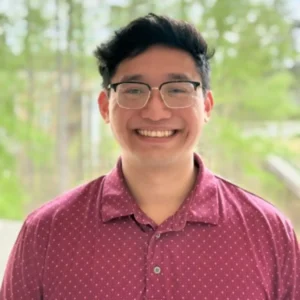
Ethan Lee is Co-Founder & CTO at Jinso, where he leads the development of AI infrastructure for language learning. A self-taught programmer and tech entrepreneur, he launched a successful freelancing agency in high school and later built secure systems for the U.S. Air Force and IoT ventures. Raised in a multilingual home, he is deeply passionate about combining culture, language, and technology to create educational impact. He argues that teaching is more than pattern recognition or assessment: it requires judgment shaped by experience, empathy, and human connection. Bilingual and tech-driven, Ethan sits at the crossroads of AI, systems engineering, and educational innovation.
Since day one, Jinso’s stance has been simple: AI is leverage for administrators and teachers, not a substitute. Teaching is more than scoring rubrics or spotting patterns; it relies on judgment shaped by experience, intuition, and the uniquely human capacity to connect. In this talk, I’ll unpack how modern AI “thinks,” where it falls short in educational contexts, and why pedagogy must remain human-led. We’ll close with practical workflows and guardrails teachers can use in daily practice to capture AI’s benefits without outsourcing their craft.
Felipe Grosso is Chief of Staff at Jinso, an AI EdTech company advancing language learning. He holds a B.A. in Honors Economics (High Distinction) from the University of British Columbia and authored an honors thesis on hurricanes’ impact on Puerto Rican educational attainment. Previously at V2A in Puerto Rico, he led analytics initiatives supporting education and public-sector decision making. He co-founded a podcast reaching 40,000+ professionals, advancing practical conversations on AI and education across Puerto Rico. Bilingual in Spanish and English, he works at the intersection of operations, AI, assessment, and teacher enablement at Jinso.
Artificial intelligence is quickly reshaping language education but how can ESL teachers make it useful today? This session introduces practical, classroom-ready prompting strategies that help teachers integrate AI tools into everyday instruction. Designed for intermediate users, this hands-on session walks educators through essential prompting techniques such as role-based prompting, few-shot prompting, and scaffolded question design to support planning, feedback, and differentiated learning.
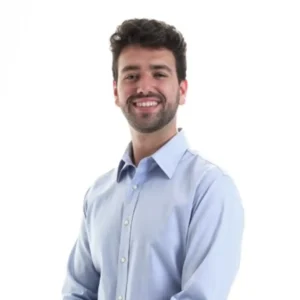

Joan Kang Shin, Ph.D. is a Professor of Education at George Mason University and the Director of the Advanced Professional Teacher Development and International Education (APTDIE) Division. She is also the founder and director of the Global Online Teacher Education Center (GOTEC) at Mason. She is an award-winning author and series editor for National Geographic Learning. Her titles include Breaking Through the Screen, Teaching Young Learners English, Our World, and Impact. She recently published a co-edited volume through Routledge called Contemporary Foundations for Teaching English as an Additional Language and a co-authored book through TESOL Press called The 6 Principles for Exemplary Teaching of English Learners: Young Learners in a Multilingual World. In 2021, she was named one of the top 30 English Language Specialists by the U.S. Department of State in recognition of her lasting impact on the Specialist Program and the field of TESOL. She currently sits on the Board of Trustees for The International Research Foundation for English Language Education (TIRF).
In today’s dynamic, multimodal world, teaching English extends beyond language skills it’s about empowering students with media literacy to thrive in real-world communication. The rise of generative AI amplifies this need, as its outputs often reflect societal stereotypes and implicit biases, particularly in image generation, which can perpetuate racism, sexism, and other forms of discrimination. This session explores how English language educators can identify and address these biases in AI-generated media, ensuring that the materials we create, and use promote inclusivity and equity. Session participants will also learn strategies to help students develop critical literacy skills, equipping them to analyze and navigate AI-generated content thoughtfully and effectively. Together, let’s ensure that the tools of the AI era serve as bridges, not barriers, to understanding one another through English.
José Bernard has an extensive background in TESL. He brings a wealth of experience developed during a rich and varied career in TESOL. He has been an English teacher for 40 years. He has been awarded bands 3 in the Teaching Knowledge Test by Cambridge Language Assessment. He has held different positions in the ELT field such as EFL teacher, English program coordinator in several schools in Santo Domingo and teacher trainer. He currently works as an EFL teacher at Instituto Cultural Dominico Americano Language School and he is also involved in EFL teaching training programs at Instituto Nacional de Capacitación de Profesores de Lenguas Extranjeras (INCAPROLE).
The purpose of this workshop is to equip English language educators with the knowledge and tools necessary to enhance long-term vocabulary and grammar retention. The session will begin by analyzing the cognitive science of memory, providing a foundational framework for understanding and addressing common learning challenges. Participants will be invited to discuss and explore five evidence-based mnemonic strategies through a series of hands-on activities, including the creation of multi-sensory and associative learning tools like songs, narrative chains, and visual imagery.
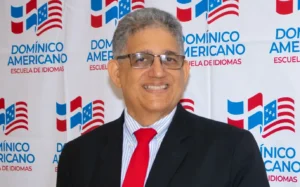

Juan Soto-Franco holds a master’s degree in Computer Education & Technology (2020) from Ohio University (OU) and another one in Applied Linguistics (2004) from (OU). In 1992, he earned a BA in Modern Languages – English – from Universidad Autónoma de Santo Domingo (UASD). He currently teaches Expository Writing at Hostos Community College (HCC) in the Bronx, New York. On July 2, 2025, the president of the Dominican Republic recognized him as a meritorious teacher for his academic excellence and community service. Some of his writings have been published on HCC’s newsletters and magazines such as Touchstone and MICROS. His most recent publication (2025) was a pair of poems (English and Spanish) in Hostos’s Peace and Poetry anthology book. He is a member of TESOL and DR-TESOL associations.
This presentation looks into using ChatGPT as an AI tool to assist teachers in working smarter, not harder. By assigning ChatGPT a role (R), defining an action (A), establishing the desired output format (F), and specifying the context (CON), teachers will learn how to create prompts to optimize their results. Thus, Role, Action, Format and Context (RAFCON) are key elements to ask ChatGPT to produce smart responses for you in any field. Teachers will be able to minimize ChatGPT’s hallucinations after dominating RAFCON. Interact with AI as a smart aid ready to assist you 24/7.
Juan Francisco de la Rosa holds a Master’s Degree in Education with a Specialization in TESOL from Nova Southeastern University. With over 30 years of experience in the public education sector (MINERD) as an EFL teacher and coordinator, he has made a lasting contribution to English language education in the Dominican Republic. He currently teaches English as a Foreign Language at the Instituto Cultural Domínico Americano (ICDA). Throughout his career, he has been recognized as Teacher of the Year in both MINERD and ICDA for his dedication, excellence, and impact in the classroom.
The curriculum clearly outlines what students are expected to learn at each grade level. However, there is often a significant gap between what they are supposed to learn and what they actually acquire. Many students struggle to develop essential skills needed for success, which they fail to grasp during their schooling year.


Luis Frías holds a Master’s degree in Languages, Education, and University Management, and is a TESOL specialist. With over 30 years of experience in the field of language education, he has taught, directed, and designed training programs for ESL/EFL teachers. He currently serves as Director of the Instituto Nacional de Capacitación de Profesores de Lenguas Extranjeras (INCAPROLE), and as a professor at Universidad Iberoamericana (UNIBE). Mr. Frías is also an active conference speaker and teacher trainer, having led professional development sessions across the Dominican Republic, Puerto Rico, and the United States.
In this concurrent session, we will explore various teaching methods and approaches through a combination of theoretical insights and practical applications. The session will highlight key pedagogical practices, techniques, principles, strategies, and activities designed to help participants recognize the characteristics of post-method era approaches and effectively implement a competence-based framework in their teaching.
Marian Valdez is a soon-to-be graduate from Modern Languages at UASD and has been a team member for ISFODOSU’s English Diploma for seven years. Looking to revamp the fascination for Literature in the classroom, she introduces ESL learners to simpler ways for developing creative and academic writing. Ms. Valdez passionately leads the English Creative Writing Club in her institution with focus on the deconstruction and creation of diverse forms of texts as a co-curricular activity, knowledge gained through formal and empirical studies. She wants to specialize in both Curriculum Development and Literature.
Dominican Literature classes have employed unchanged traditional forms of texts for over 30 years, despite the latest generations of learners having shown an increasing interest in visual texts such as anime and comics. Media literacy, short-form writing and situational speaking competences could be improved if new formats are adopted. To address this, Ms. Valdez will share three methods to inject comics into any class while factoring different learning styles.


Orly Rojas holds a Master’s in Teaching English as a Foreign Language from Universidad Domínico Americano (UNICDA). She’s currently the Instructional Coach at Domínico Americano School, where she supports teachers in designing meaningful, reflective, and student-centered learning experiences. She is in the process of earning her SIT TESOL Trainer-Being-Trained certification, deepening her expertise in experiential and transformative teacher education. Orly’s work focuses on helping educators blend empathy with evidence, promotes purposeful teaching and continuous professional growth.
This session explores how the SIT TESOL framework helps teachers connect empathy and insight in their daily practice. Through the Experiential Learning Cycle, participants will reflect on how learning from experience leads to meaningful and measurable growth. The session offers practical ways to design SMART lessons that keep human connection and reflection at the heart of teaching.
Rosanna Antonia Viña Valdez holds a Bachelor’s Degree in Modern Languages, majoring in English, from the Autonomous University of Santo Domingo (UASD). She also holds a Master’s Degree in Applied Linguistics for the Teaching of English as a Foreign Language from the same institution.
She currently works as a secondary school teacher at Matías Ramón Mella School in the afternoon and at Las Palmas High School at night, where she motivates students to develop leadership skills by promoting scholarships and cultural exchange programs. In addition, she teaches adults in the PREPARA High School program.
Rosanna was recognized as an outstanding teacher in the TEA Program (2018) for her leadership in organizing educational camps, academic trips, and community projects. She was also the winner of the international project “Cleaning Our Community: Preventing Dengue.”
Her next mission is to share her experiences globally, inspiring students and English teachers alike with her message: “If you want, you can!”
This session shares how the Teaching Excellence and Achievement (TEA) Program transformed my professional life. Participants will learn how to become a successful TEA Fellow and how to win the Global Teacher Grant project. The workshop aims to inspire educators to expand their leadership beyond the classroom, taking it from school all the way around the world.
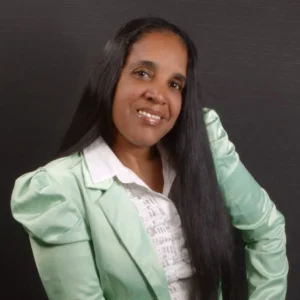

Yissel Familia began her teaching journey in 2018, driven by a passion for education and the ELT field. She currently teaches at Instituto Cultural Dominico Americano, with over seven years of experience inspiring students and fostering language learning. While teaching, she earned her MBA from Barna Management School, where she strengthened her decision-making and problem-solving skills through the case study method, which she now applies to analyze classroom situations and design effective learning strategies. Along the way, she pursued specialized training in digital education, competency-based assessment, and creative thinking development at Universidad Internacional de La Rioja (UNIR, Spain). She also completed the Professional Development for Teacher Trainers program by Arizona State University (OPEN Program, U.S. Department of State), deepening her mentoring and teacher development skills.Today, she continues to refine her professional path through the Teacher Trainer (TBT) Certification by World Learning SIT Graduate Institute, further enhancing her practice in experiential learning, reflective teaching, feedback, and facilitation.
This interactive workshop explores how practice teaching and feedback can serve as catalysts for continuous professional growth. Grounded in principles from the SIT Teacher Trainer Course, participants will engage in experiential learning cycles of teaching, observing, reflecting, and applying insights. The session emphasizes the power of constructive feedback to promote reflective teaching, build confidence, and strengthen classroom engagement. Attendees will leave with practical, easy-to-apply strategies to make feedback more meaningful and impactful in their own teaching contexts.




